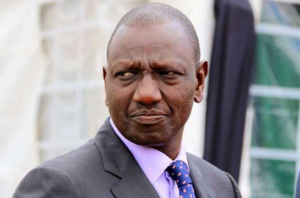United Nations Secretary-General, António Guterres, has reiterated UN’s continued commitment to Kenya in the wake of deadly floods caused by weeks of heavy rains in the region.

Guterres was saddened by the loss of lives and damage caused by flash flooding in the capital, Nairobi, and other parts of the country, his spokesperson said on Monday, April 29, 2024.
The Secretary-General extended his condolences and solidarity to the families of the victims and to the people and Government of Kenya.
On Monday, rescue teams were searching for survivors after a dam burst in Mai Mahiu in western Kenya, killing at least 35 people, according to international media reports.
The heavy rains began in March, killing more than 100 people across the country since then.
This season’s flash flooding follows similarly heavy rains that began late last year, affecting almost 600,000 people.
The UN Resident Representative in Kenya, Dr Stephen Jackson, also expressed solidarity with the people and Government during an event to distribute emergency aid to flood survivors, which was led by Vice President Rigathi Gachagua.
More than 300 households received aid, provided through the UN refugee agency, UNHCR, that included food, mattresses, blankets, water tanks, mosquito nets and equipment to help them rebuild.
“Together, we are taking steps to meet urgent needs. What worries me is how Kenya is currently facing a climate emergency that it did not cause; drought and floods,” Jackson said.
The UN team on the ground has been working closely with national and international partners since the start of the flooding to help support nearly 25,000 people with food and non-food items directly.
Meanwhile, UNHCR in Kenya said the heavy rains are causing serious flooding and displacement at the Dadaab refugee camps, located in the north.
“Many refugees have been forced from their homes, seeking shelter in schools and on higher ground,” UNHCR Representative to Kenya, Caroline van Buren, said on the social media platform X, formerly Twitter.
The agency is coordinating with local government authorities, including to move people to safety.
By Cecilia Ologunagba
